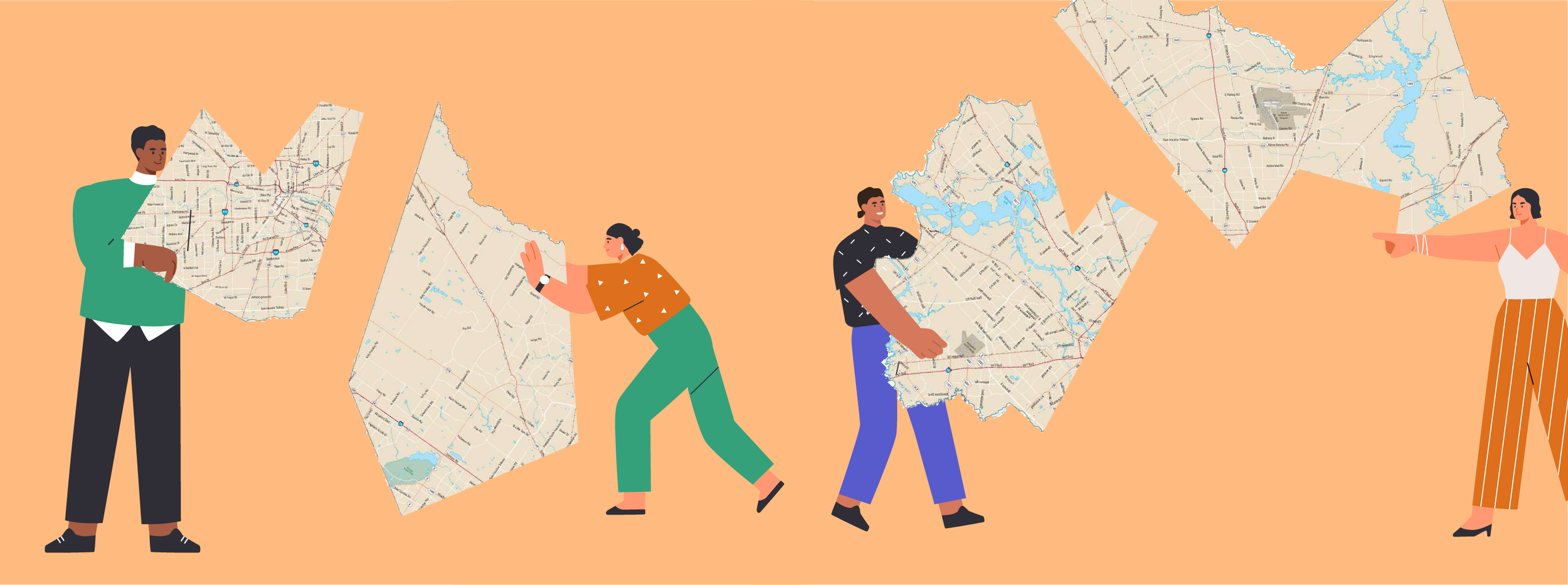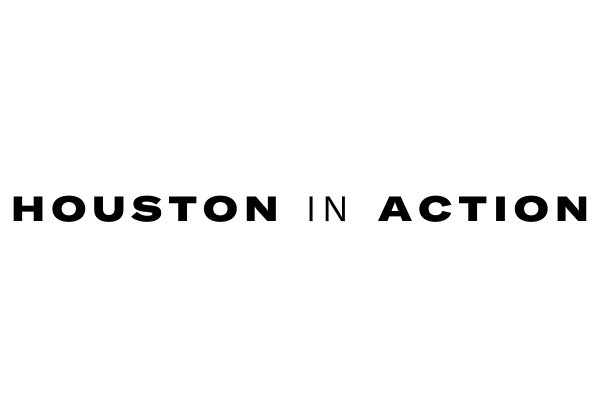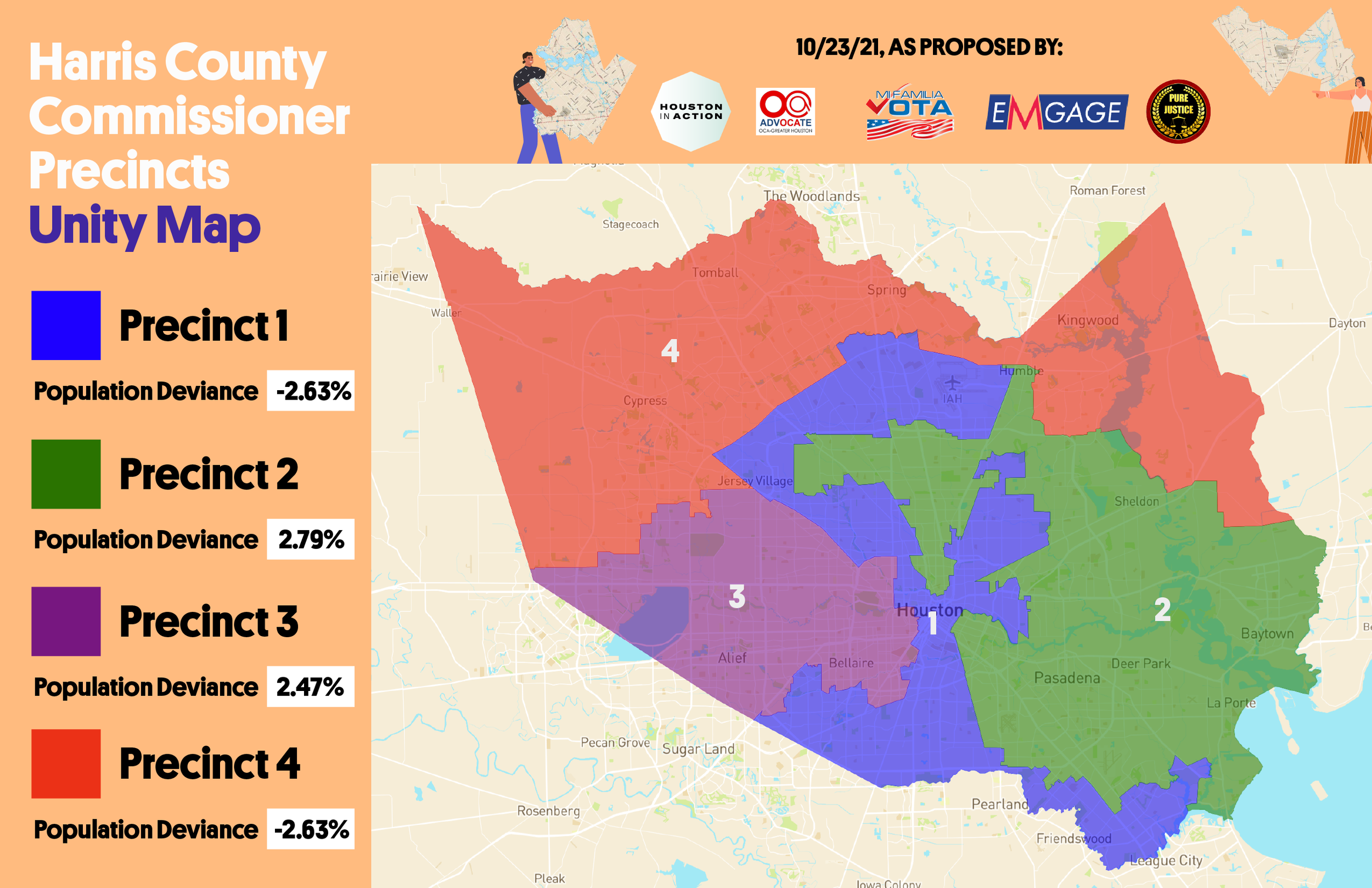
Unity Maps
Texas has a long history of targeting communities of color and excluding them from the political process by dividing them along district lines. For this reason we recognize the significance of redistricting and community mapping."- Juan Cardoza-Oquendo, Director of Public Policy at Houston in Action
To have a voice in representation and public policy and build political power, we have to engage in the redistricting process that occurs every ten years after the Census. No matter which issues are most important to you and your community - whether it’s elections, criminal justice, healthcare, education, environmental justice, or any other - impacting those issues depends on electing representatives who align with your communities’ interests and needs. Redistricting - the process by which elected officials draw electoral districts at all levels of government - is the first step to elect those representatives.
We must hold our elected leaders accountable for ensuring the process to make new maps is fair and transparent and allows regular people to participate along the way. Elected officials must neither divide large communities of color across several districts and weaken their voting impact, nor pack them into a few heavily concentrated districts that stave off their voting power from the remainder of the region or state.
The Problem and Our Solution
The history of Texas is rife with systemic racism and gerrymandering, the drawing of district lines to disenfranchise voters. Preserving communities of interest and ensuring fair representation in electoral maps is central to our democracy. The public should have a say in who represents them. Through an open and fair redistricting process, we can ensure communities of color and marginalized communities influence the elected officials who make the policy decisions that shape their lives.
Although redistricting impacts all levels of government, Houston in Action will prioritize the local level of government. County precinct boundaries must reflect real communities and their interests. Ensuring fair maps will mean that Harris County residents will have a voice in the issues that affect their lives, from flood control to criminal justice to environmental health to many other issues. Houston in Action member organizations have been planning since 2019 how to participate in the redistricting process. We are amplifying the voices of our communities and members and regular folks whose lives are affected by these maps.
We are fighting for a transparent process that reflects our communities, and a system that represents us all. Our most powerful tool? Community Mapping.
What is community mapping?
Community mapping is a collaborative mapping exercise where people tell their own stories. Regular people define where their communities are. It is when a group of people self-identify who they are, their mutual interests, and what is valuable to them. By self-identifying their shared culture, history, and policy concerns they demonstrate the benefit of being represented in the same district.
Instead of those outside the community deciding where dividing lines are drawn, those who live in the community draw the maps themselves. Community maps especially allow communities of color to be represented together, amplifying their political power.
Through community mapping we can make Unity Maps. These maps allow groups who have historically been pitted against each other to present a united front about how they want district lines to be drawn.
In addition to the maps themselves, community stories and personal testimony are central to community mapping. Sharing personal stories helps shift the narrative of redistricting from politicians to everyday citizens. After all, everyday citizens having a voice is what democracy is all about. Community maps are an opportunity for elected officials to understand why the drawing of these lines around culture and community are important, and offer the media stories to tell.
2021 Harris County Commissioner’s Court Unity Map Proposal
To have a voice in representation and public policy and build political power, we have to engage in the redistricting process that occurs every ten years after the Census. No matter which issues are most important to you and your community - whether it’s elections, criminal justice, healthcare, education, environmental justice, or any other - impacting those issues depends on electing representatives who align with your communities’ interests and needs.
Houston in Action alongside our member organizations Mi Familia Vota, Pure Justice, OCA Greater Houston, and EMGAGE Action asked that Harris County ensure that the process is fair and transparent and allows regular people to participate along the way. Elected officials must neither divide large communities of color across several districts and weaken their voting impact, nor pack them into a few heavily concentrated districts that stave off their voting power from the remainder of the region or state.
Our Unity Map
Over six months, Houston in Action facilitated the creation of a 2021 Harris County Commissioners Court Unity Map with our member groups Mi Familia Vota, Pure Justice, OCA Greater Houston, and EMGAGE Action.
These organizations mapped a total of 43 communities of interest with community leaders throughout Harris County. They held dozens of one-on-one and group meetings to discuss the redistricting process and gather priorities for the Commissioner map.
Details about our Unity Map:
Our Unity Map keeps communities of interest whole so they can elect leaders who will fight for their issues and so that those communities can hold them accountable.
Our map preserves many communities of interest in Precinct One, including Third Ward, Fifth Ward, Sunnyside, South Union, Kashmere Gardens, Trinity Gardens, Independence Heights, and Acres Homes.
Our map preserves Precinct Two as containing most areas in eastern Harris County, including Channelview, Pasadena, Galena Park, Baytown, and Deer Park.
Pct. Two also is redrawn to include all of the community of Aldine, which is split among Pct. Four, Pct. One, and Pct. Two in the current map.
Many communities in Pct. Two also face pollution because of toxic release facilities; for this reason, we have kept them in Pct. Two.
Our map ensures that many communities of interest are contained entirely within Pct. Three. These communities include Asiatown, Alief, Sharpstown, Gulfton, Hillcroft, Spring Branch, Bellaire, and the Medical Center.
In our Unity Map, Alief is completely within Pct. Three.
Interact with our Unity Map
You can use the map below or scroll through our storymap explaining how the map was created.
-

“In order to ensure that the will of the people is reflected in any districts drawn from hereon, we worked with community members to draw communities of interest and identify issues that need to be prioritized by their elected commissioners. Concerns such as decaying infrastructure, flooding, houselessness and more broadly socioeconomic disparities cannot be addressed without adequate funding and responsiveness by elected officials." - Amatullah Contractor, Deputy Executive Director, Emgage Texas
-

“Community maps should be people and issue-based; this map was drawn by the community and focuses on their needs. Advancements come when constituents choose electeds, instead of electeds choosing constituents. The time is now" - RoShawn Evans, co-founder and Organizing Director at Pure Justice.
-

Over the past few months, we’ve had conversations centered on the lived experiences of community leaders and members to discuss not just where they live, but the issues that they experience, many of which have not been meaningfully addressed for decades and generations. The common needs and narratives of marginalized neighborhoods have been distorted by imaginary lines that communities had no say in. We were able to draw maps that retain and keep communities whole and the issues they face; something that seems to elude elected officials who are meant to uphold their oath to serve all constituents, not only their voters. These maps demonstrate how the Harris County Commissioners Court can and must prioritize real community issues and interests,” shared Marla Lopez, Interim Houston Coordinator at Mi Familia Vota.


